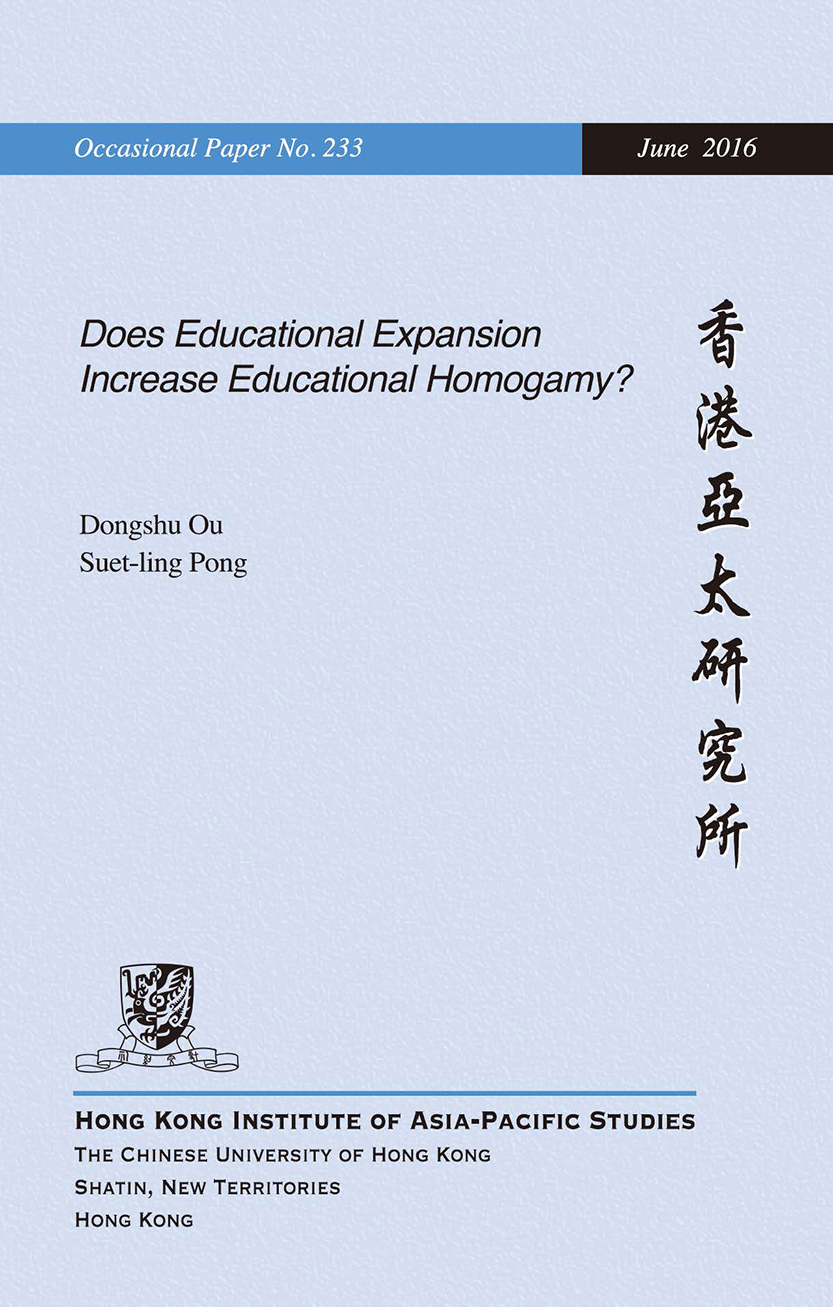HKIAPS Publications
By Dongshu OU and Suet-ling PONG
English/21.5 x 14 cm/paperback/ii+44 pages/published in June 2016
ISBN 978-962-441-233-8; list price: US$3.00 (HK$20.00)

In the late 1980s, Hong Kong’s colonial government deliberately expanded post-secondary education, greatly increasing women’s access to universities. Using this change in policy as an instrument, we estimate the correlation between the level of education of individuals and that of their spouses using a two-stage least-squares (2SLS) regression model. The estimates reveal the effects of the expansion policy on educational homogamy. Our findings, based on a micro-data analysis of data from the Hong Kong census, show that the ordinary least squares (OLS) estimates of the education of individual women and their spouses are downward biased, indicating that the women most affected by the expansion of higher education are more likely to marry someone of a similar level of education. Several robustness checks are performed. The analysis highlights the importance of understanding the consequences of educational policies on family formation. Our study also extends the existing literature on the long-term impacts of policies to expand higher education in a new institutional context.
教育擴張是否增強教育同質化?
港英政府於20世紀80年代進行了香港高等教育擴張,極大提高了女性的大學入學率。基於這一政策的變化,本研究使用2SLS回歸模型估算了個人及其配偶教育水平之間的關聯。研究估算顯示,擴張政策對教育同質化存在影響。通過分析香港人口普查的微觀數據,本研究發現運用OLS回歸模型估計的女性及其配偶教育水平之間的關聯偏低,而實際上受高等教育擴張影響最大的女性,越傾向嫁給與自己教育水平相近的配偶。本文還進行了穩健性檢驗。此分析有助我們了解教育政策對家庭組成的重要性,至於本文所探討的新型高等教育機構背景下高等教育擴張政策的長期影響,更豐富了現時的文獻論述。
